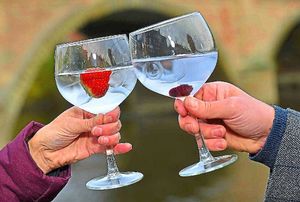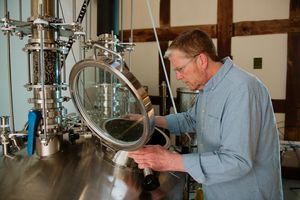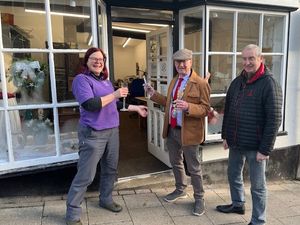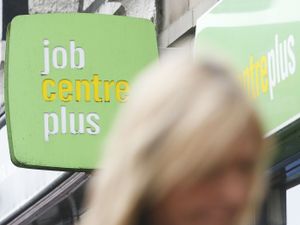It’s always gin o’clock somewhere on Earth
Gin has become big business, with booming export figures being revealed for the UK’s new favourite tipple in the early part of this year.
In England gin was once known as the drink of the poor due to its cheapness, and it was once the taste of prohibition in America, with people making it in their bathtubs and consuming it in speakeasies.
The drink, which is a spirit distilled from grain or malt and flavoured with juniper berries, certainly has its place in history. But after a while in the doldrums after falling out of fashion – gin is well and truly back.
Gin bars and distilleries are thriving and there are a wealth of them popping up all over towns and cities across the country. Bar owners are being creative and creating a wider range of cocktails giving the drink a facelift and a new lease of life.
But UK gin is doing particularly well not only at home but aboard too.

UK gin exports in the first three months of 2019 worth £155 million – the biggest opening quarter in recent history, and a 30 per cent increase on the first quarter of 2018.
British gin exports increased by 15 per cent in 2018, worth £613 million. Gin exports are now worth more than double 2010’s sales of £288 million.
The most popular destinations for British gin in January, February and March 2019 were the United States, which imported £50 million, closely followed by Spain and Germany, which imported £19 million and £10 million respectively.
International Trade Secretary Dr Liam Fox MP said: “We raise a glass to our national gin heritage and expertise, which is translating into economic benefits for the country and supporting local job creation.
“UK drinks exports continue to grow from strength to strength and, for the first time, the UK has an international economic department – the Department for International Trade – helping British business succeed abroad in ways that never happened before, so I urge more businesses to take the first steps to start exporting.”
Focussing
Near Stafford Nelson's Distillery has just entered the export market for the first time this year.
"Export is going to be big for us," says founder Neil Harrison. "This is our first year of dipping our toes into export but we can see it's already going to be huge. Places like India, Dubai and Hong Kong – they all want British gin. It's an inherently British drink and everyone wants it from here, so exporting is a no brainer for us."
Nelson's have been focussing on the domestic market for the last few years and riding the wave of the British boom in gin sales. But he says exporting is now the market to enter with gin, with patterns likely to be changing in Britain soon.
"We have cracked the British market over the last couple of years," says Neil. "That market has started to flat line a bit, but exports are a few years behind here and the growth has only really just started, and there'll be another few years of that to come."

In Shropshire, Scott Kirkwood of Kirkwood's Distillery says that he believes the domestic market is still strong.
"I have been doing gin for the past eight years and people are wondering if we have reached peak gin," he says. "You think you've reached that point and then it just grows again.
"One of the problems is that there is not a great deal of brand loyalty out there with gin and there is a bit of saturation in the market. It's that rather than demand for gin going down."
At the moment Scott doesn't see his future in exports as he prides himself on using local Shropshire ingredients to make his product. He said he's also not too concerned if gin sales do start to see a dip in the future.
"I do a lot of different things including whiskey and vodka – gin isn't the only thing keeping my business going," he said. "When I started this I was interested in owning a distillery, but it happened that the gin market was there and people were starting new styles. The thing is that whiskey is a longer game, while gin will be ready in about four of five weeks."
Gin began life as a medical spirit in the early 1600s, used to give British troops fighting in the Low Countries during the Thirty Years’ War. It was called ‘Dutch courage’.
The Royals did their best to help gin take off. King Charles I set up the Worshipful Company of Distillers, where members had the sole right to distil spirits in London, Westminster and up to 21 miles beyond.
Farming also played its part, as gin was found to be a great way of using up surplus barley and corn.
Popular
Then, When King William III, otherwise known as William of Orange, came to the throne in 1689, he made a series of statutes meaning encouraging the distillation of English spirits. Thanks to William of Orange and according to his statues, anyone could now distil gin by just posting a notice in public and waiting 10 days. Gin was even In fact, gin was then distributed to workers as part of their wages and soon the volume sold daily exceeded that of the often more expensive beer and ale.
It was later sold in chemists throughout the nation and became so popular in the 1700s that the abuse of alcohol by the poor became a major problem – so the The Gin Act was brought in during September 1736.
The act made gin incredibly expensive, to try and deter the masses from drinking it. Riots broke out and the law was widely and openly broken.
Skip forward a few hundred years and you find us here, exporting gin all over the world.
But at home, patterns could soon be changing and Neil Harrison believes he is already getting ahead of the curve.
"We have also started doing rum," he said. "That is going to be the next big thing here. It's a general trend. This is kind of the testing ground, and then when they hit things like Instagram and Facebook people want to have a slice of the action. The export market is 1,000 times bigger than the domestic one so you only need a small part of that to really make a difference to the business."





